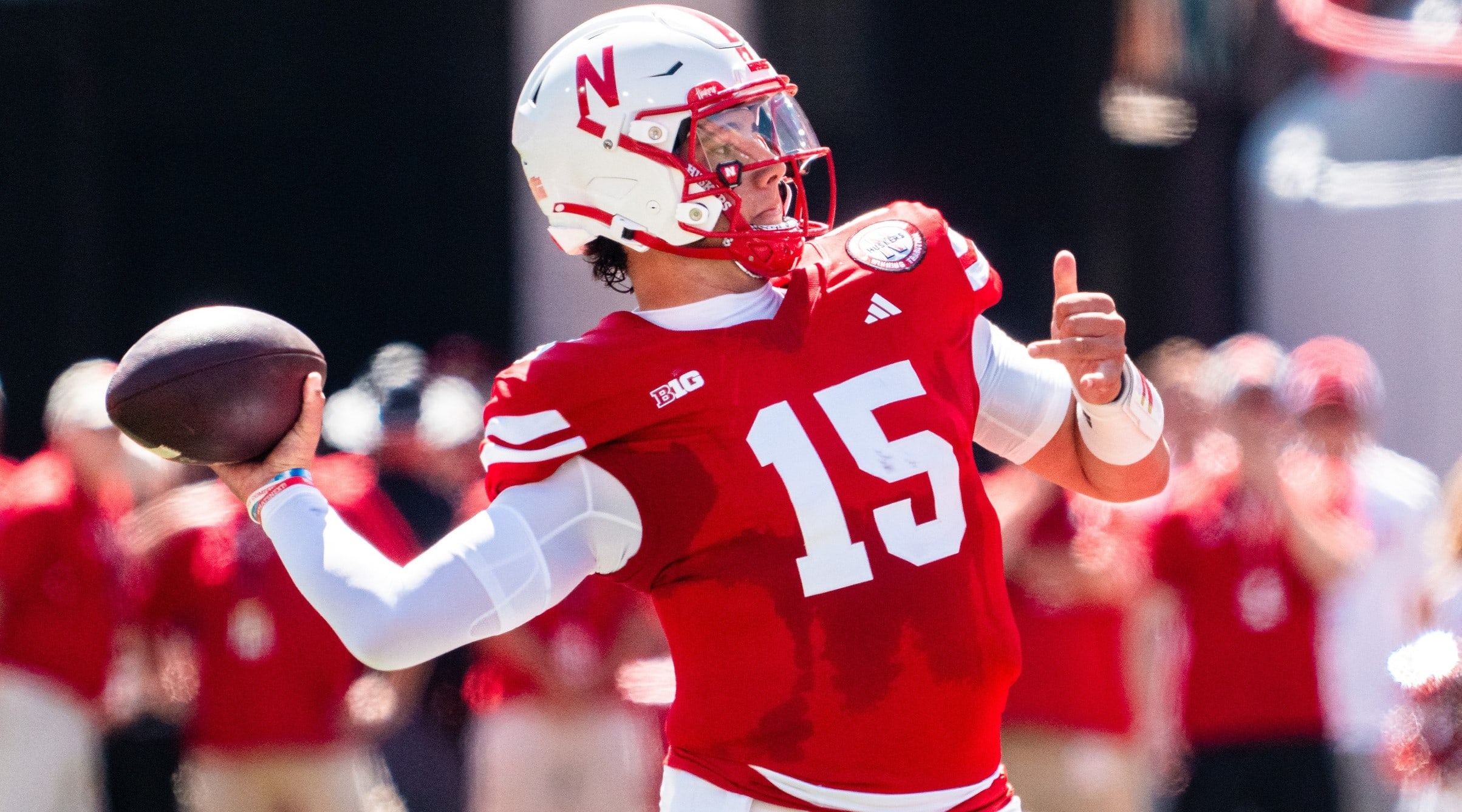College Football DFS 101
As football gets underway, many of you out there are prepping for your season-long NFL drafts or gathering your bankroll for a season of NFL DFS play. While this is a popular methodology for fantasy enthusiasts, they may be missing out on one of the most enjoyable (and profitable) platforms by giving college football a pass in their pursuits.
The idea of college football DFS can seem daunting. After all, there are over 130 FBS teams, and it's an overwhelming task to quantify value with a player pool of that size. However, as you begin to look at the DFS offerings on the popular fantasy sites, you'll find that the college football schedule is trimmed down to a very manageable level and spread out among day and night slates, making it a lower-variance option than the 15-game slates you might find on a Sunday in the NFL streets. While you'll have to dig a little deeper into the world of Twitter and local beat writers to find an edge, the potential for profitability is there for those who are willing to do their homework.
First, let's introduce you to DraftKings' and FanDuel's approaches to college football DFS contests and how they differ.
College Football DFS Basics
DRAFTKINGS LINEUP: 1 QB, 2 RB, 3 WR, FLEX (RB/WR/TE), SUPERFLEX (QB/RB/WR/TE)
FANDUEL LINEUP: 1 QB, 2 RB, 3 WR, SUPERFLEX (QB/RB/WR/TE)
As you'll notice, FanDuel omits the additional FLEX position offered by DraftKings, but both sites employ the SUPERFLEX
College Football DFS 101
As football gets underway, many of you out there are prepping for your season-long NFL drafts or gathering your bankroll for a season of NFL DFS play. While this is a popular methodology for fantasy enthusiasts, they may be missing out on one of the most enjoyable (and profitable) platforms by giving college football a pass in their pursuits.
The idea of college football DFS can seem daunting. After all, there are over 130 FBS teams, and it's an overwhelming task to quantify value with a player pool of that size. However, as you begin to look at the DFS offerings on the popular fantasy sites, you'll find that the college football schedule is trimmed down to a very manageable level and spread out among day and night slates, making it a lower-variance option than the 15-game slates you might find on a Sunday in the NFL streets. While you'll have to dig a little deeper into the world of Twitter and local beat writers to find an edge, the potential for profitability is there for those who are willing to do their homework.
First, let's introduce you to DraftKings' and FanDuel's approaches to college football DFS contests and how they differ.
College Football DFS Basics
DRAFTKINGS LINEUP: 1 QB, 2 RB, 3 WR, FLEX (RB/WR/TE), SUPERFLEX (QB/RB/WR/TE)
FANDUEL LINEUP: 1 QB, 2 RB, 3 WR, SUPERFLEX (QB/RB/WR/TE)
As you'll notice, FanDuel omits the additional FLEX position offered by DraftKings, but both sites employ the SUPERFLEX option, which allows you to play two quarterbacks. Suppose you consider the average number of offensive snaps in a college football game (65-70) and it's usually advisable to take a dual-QB approach unless you have an every-down back option who will see 25-30 touches per game (Ollie Gordon for Oklahoma State was a good example in 2023). In this case, an RB could find his way into an S-FLEX position.
LINEUP CONSTRUCTION
A lot of the material covered in this section applies to the NFL as well, but it is always good to remind yourself of some of the critical methods when constructing DFS lineups.
STACKING
Stacking offensive players from the same team is a popular way to stand atop the standings in a DFS contest. When considering a team stack, remember that the SPORTSBOOK IS YOUR FRIEND. We want to look for games with narrow spreads and high Over/Under totals when using a QB/WR stack. When the O/U total is a little lower, and the spread is a bit wider, the idea of taking a QB/RB stack with the favored team is also a good idea. Conversely, if the team passing numbers for the underdog team are strong enough, using a QB/WR stack is also plausible, assuming that the team will pass the ball more when playing from behind.
CORRELATION
Correlation is a simple concept to grasp, but it's often overlooked, especially with those who crunch several lineups into a single contest. A positive correlation would be the QB/WR and QB/RB combos discussed above, assuming that the game flow corresponds with that strategy. A negative correlation would be the use of multiple WRs or RBs from the same team. Also, except for extremely high O/U totals, a narrow spread, and an absence of comparable games, it's best to diversify your lineup instead of pitting two teams against each other. If the game flow goes another way, you are handcuffed to that game's outcome without much opportunity to bounce back.
ROSTER PERCENTAGE CONSIDERATIONS
Every week, a cast of the usual suspects will emerge as popular options on a slate. If you are playing cash games (50/the 50s, Double-Ups), playing those elite options is necessary to keep pace with the remainder of the field. When playing a large-field tournament, you'll need to take some shots at players who might be less popular. Unlike other sports, football is not an incremental game where multiple players gradually accumulate points. A single big play from a QB/WR combo can break a slate, adding double-digit totals for both players, and if you don't have that duo, you're unlikely to cash. Thankfully, college football provides an excellent atmosphere for finding rare targets as players develop. While contrarian and less popular plays in the NFL are usually found due to injury, the large roster sizes found in the college ranks allow for untested newcomers and transfer stars to make a splash, which makes pre-slate homework a must (more on that in a moment).
We could dedicate multiple articles to every nuance of DFS play, but the article's purpose is to provide a primer for tackling college football. With that in mind, here are five things to consider when playing the NCAA football slates.
Six Tips For College Football DFS
1. TRUST THE NUMBERS
When first tackling a slate, the first thing I do is look at the Vegas numbers. You can find them all on RotoWire's latest college football odds page. With the odds and O/U totals in mind, I can get a good idea of which games I want to focus on or avoid. Once I've covered that base, I recommend looking at our Defense vs. Position and Team Rankings to better understand how teams on the slate are performing. Rushing and passing defense metrics are invaluable when deciding between offensive position players on any given slate.
2. DO YOUR HOMEWORK AND STAY ALERT PRIOR TO KICKOFF
College football is notorious for providing a lot of late-breaking news every week. As game day approaches, I like to give Twitter a spin and see what beat writers for each team on the slate are saying about the upcoming week's matchup. Of course, RotoWire does a lot of the legwork for you with our player updates, but any nugget you can extract from coach interviews or injury information can make a huge difference in your bottom line.
3. FADE THE TIGHT END POSITION
Aside from naming all the tight ends on your favorite college team, can you name FIVE productive college tight ends? There's a reason why you probably can't and a reason why the fantasy sites don't provide a TE slot. By and large, tight ends are a non-factor in college DFS. Unless you have a hype-filled guy like Utah's Brant Kuithe on your slate, it's best to avoid them in cash games, and they're only useful when taking deep shots in a GPP tournament.
4. ELIMINATE TEAM BIAS
I fight this problem every season. Most of us have a favorite college team. Either we went there, or someone in our family went there, or we grew up near there - any number of affiliations can apply. Sure, it might be fun for you to play your favorite players, even if they are 40-point favorites and may only play three quarters. Bottom line - it's a bad idea. Since we just mentioned that particular scenario, it's important to point out the risk involved when teams like Alabama, Georgia, or any other high-profile team play a weak or FCS opponent. You need to look at the trends in previous blowout games and find a coach's tendencies to pull their top players if you want to utilize someone in these scenarios.
5. USE A WR IN FLEX POSITIONS
This tip is especially true for GPP tournaments on DraftKings, where you receive one point per reception. Unless you've been able to single out a running back who is an excellent pass-catcher, it's usually advantageous to place a wideout in your FLEX position to maximize your upside. One can make an argument for a productive running back if you are playing a cash contest, but you're unlikely to make much headway in a large tournament if you don't take an additional shot at wideout. Their ability to rack up points via receptions is invaluable and ultimately provides more upside than a mid-level running back.
5. DECIDE WHY YOU'RE PLAYING
Are you doing this for fun? Great. Are you doing it to make money? Awesome. A combination of the two? That's a popular response. Before we tackle this subject, let's lay out some simple facts. Although it only takes one perfect lineup to win a GPP, the odds are stacked against you at the outset. There are DFS sharks out there who have a larger bankroll than you are willing to risk (and will play) 150 lineups in every multi-entry contest. No matter your aim this season, I recommend setting up a bankroll and sticking to it. Bankroll management may seem tedious and a real buzzkill for risk-takers, but it's critical if you want to last a season without dipping into your wallet repeatedly. My personal rule is to only risk 10 percent of my bankroll on any given slate, and depending on the edge I think I have, I'll vary my cash/GPP ratio accordingly. I also try to make as many different lineups as I can in those GPPs. Let's say you only are willing to risk $100 this season and only have $10 to work with that week. There are many $.25 and $.50 contests out there where you can play four, eight, or 40 lineups with that 10 bucks, depending on your desired cash/GPP ratio. A great way to play around with multiple lineups is to use our college football DFS lineup optimizer, which is chock-full of brand-new customizations. Our optimizer will allow you to vary the number of unique players you have, and can also adjust projections based on your own research. Another projection tool is the variance percentage tool, which will randomly apply increases and decreases to your projections up to the percentage that you set. This feature is a tool I use every week! Another great advantage to our optimizer is the ability to assign alerts to players in your lineups, which is a great way to stay on top of the latest information.
I'll be around all season with DFS articles for various slates and am happy to answer any questions via my Twitter handle below. Best of luck this season!

























